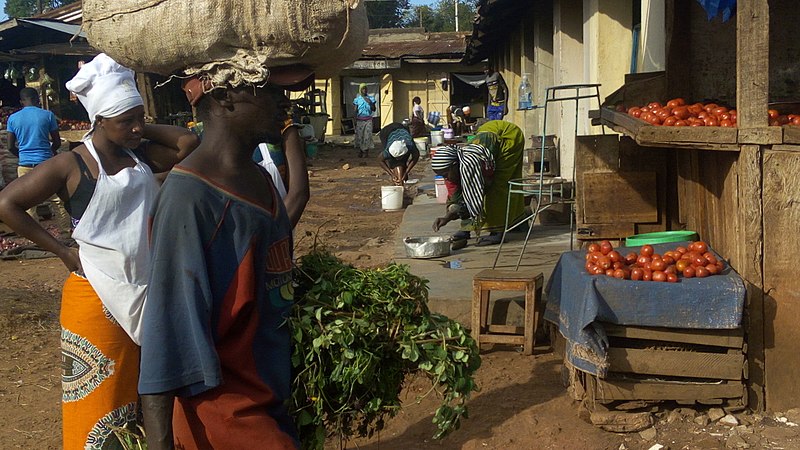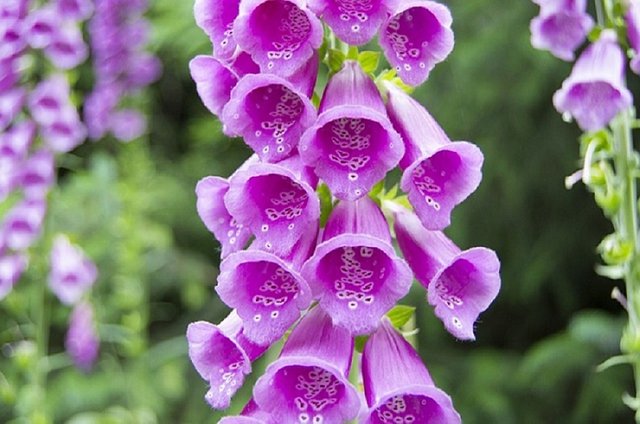Good day everyone. I started to write about herbal medicine in my last post. I am very grateful to those who took the time to read and comment on the post. If you have the time, you may like to take a few minute off to read my last post here.
Herbal medicine are very beneficial to mankind and their potential in alleviating the scourge of many life threatening diseases is yet to be fully exploited. Having said that, I must also say that herbal medicine can be a source of toxicity unless their safety, quality and efficacy are guaranteed by regulatory authorities. Many people are often taken back upon hearing or reading the last statement. They are thinking -herbs are natural. How can they be toxic? Natural is simply not synonymous with safety. There have been numerous cases of poisoning resulting from the consumption of herbal medicines. That's why herbal medicines need to be subjected to processes that ascertain their safety, quality and efficacy just in the same way pharmaceutical drugs are subjected to evaluations before being licensed by regulatory authorities for marketing.
When you purchase a pharmaceutical drug, you find a leaflet containing useful information about how to use the drug, side effect of the drug, dosage etc. At present, that's cannot be said of many herbal medicines that are found in the market of many Africa countries because people assume that herbs are natural and therefore they are safe. But Alas! that's a costly assumption.
Reason for toxicities of herbal medicines
Self- medication: People consume herbs without prescription by qualified practitioners because they are thinking herbs are natural therefore they are always safe. Usually, those who indulge in self-medication does not take into consideration a number of factors such as their medical history, their age, weight etc when consuming these herbs.
Lack of professionalism by practitioners: Majority of people who prescribe herbs to people in developing countries lack professionalism. They do so because their forefather was a practitioner or because they happen to read a book on herbs. It is these type of practitioners that often mistakenly collect the wrong species of herbs for drug production.
The problem of over dosage: It was Paracelsus who said long ago that all substances are poison, only the right dosage make them a remedy. This apply to herbal medicine too.
Adulteration: Some herbal medicine manufacturers are dubious. They include other foreign substances to their products to maximize profit.
Contamination: Sometimes, the herbs that are used in the production of these herbal medicines have been contaminated by heavy metal, pesticide as a result of pollution of the location from which they were collected.
Concomitantly using herbal medicine with pharmaceutical drugs: This can result into herbal-drug interaction that can pose serious health challenges to such users.
Type of toxicities of herbal medicines
- Cardio-toxicity: This kind of toxicity result from damage to the heart or alteration to it's functions. An example of herbs with potential for causing cardio-toxicity is Digitalis purpurea
Nephrotoxicity: This occur when the kidney is damage from exposure to toxin. Tripterygium Wilfordii is an example of a herb that can induce nephrotoxicity.
Hepatotoxicity: This occur when the liver is damage from exposure to toxin or poison. An example of a herb capable of causing hepatotoxicity is Larrea tridentata
Neurotoxicity: Physical damage to the brain as a result of exposure to neurotoxin. Papaver Somniferum can induce neurotoxicity.
Dermatotoxicity : This occur when the skin is exposed to toxins. Cannabis sativa can cause dermatotoxicity.
Standardization of Herbal medicines
Standardization of herbal medicines refer to processes by which specific characteristics, constant parameters validating the identity, purity and quality of herbal medicines are set.
There are a number of factors which are not applicable to pharmaceutical drugs that make the standardization of herbal medicines challenging. They include:
The fact that more often than not, herbal medicines are mixtures of more than one herbs with numerous constituents which make the time and resources require for their standardization to be enormous.
The bioactive principles ( chemicals with medicinal or therapeutic values) present in these medicine are usually unknown.
Variability of herbal constituents due to genetic and environmental factors.
The quality of herbs are influenced by a number of factors such as harvesting, storage, transportation and processing methods.
Processes and Procedures for standardizing Herbal Medicines
In order to ensure safety and quality of herbal medicine, regulatory authorities must see to it that quality standard as prescribed in herbal medicines pharmacopoeias are religiously followed.
In evaluating herbal medicine for safety and quality, consideration is given to the following:
Macro and Microscopic examination: This help in establishing the variety of the herb and in validating the presence or absence of adulterant.
Foreign Organic Matter: This is done to ensure that the crude drug is in its pure form.
Ash Values: It is used to assess both the identity and the purity of the herb
Extractive Values: This test give indicative weight of the chemical constituent of the herb when extracted using different solvent.
Crude fibre; This is another parameter for assessing the purity of the herb.
Qualitative and Quantitative chemical evaluation: This is used to identify and quantify the amount of the various classes of active component s of the plant. It involves the use of different analytical methods and tools.
Toxicological Studies : This show the toxicity of the herb or its safety.
Good Agricultural and Manufacturing practices
One of the major steps taken to ensure the safety and quality of herbal medicine is by mandating manufacturer of these product to follow good agricultural and manufacturing practices. This is because the quality of herbal product to a very large extent depend on the prevailing condition of growth of the herb. That is the medicinal properties of herbs are a function of their growth condition. Therefore, following good agricultural practices can help in controlling the quality of herbal product.
In the same vein, as mentioned earlier, the method of processing influences the quality of herbal medicine. Therefore regulatory authorities must ensure that manufacturer of herbal medicine adhere to good manufacturing practices in order to safeguard the health of consumer of these products.
Conclusion
Herbal medicine are very beneficial in the treatment of different kinds of ailment and their potentials are yet to be fully exploited. However, the safety, quality and efficacy need to be guaranteed otherwise the health of the consuming public is at stake as they can also be toxic when used indiscreetly. Natural is not synonymous with safety.
References
Toxic effects as a result of herbal medicine intake
Standardization of herbal medicines - a review
Until the next time, go on steeming. Thanks for stopping by to read my post.


I find this topic very important for the education of general population.
From my perspective, the most problematic part is the consistency of ingredients in plants. Maybe that particular year was too dry or too humid, or the plant was harvested at the wrong time, or...
There are many papers that describe the composition of plant extracts and the variations are incredible. Maybe that could be your next topic ;)
Downvoting a post can decrease pending rewards and make it less visible. Common reasons:
Submit
Thanks for your comment and suggestion. They are highly treasured.
Downvoting a post can decrease pending rewards and make it less visible. Common reasons:
Submit
I completely agree with you that herbal medicine should be thoroughly screen before been certified for use. We've heard cases of people taking some of these drugs and end up in the hospital, if they are lucky to be alive, while some die due to the acute toxicity. Well done @saintgentle for this well written post
Downvoting a post can decrease pending rewards and make it less visible. Common reasons:
Submit
@saintgentle well done, in my opinion, the question of dosage and effect of untutored dosage on liver and kidney also come to mind. these herbs are quite potent, they could cure the specific ailment and at the same time endanger vital organs.
Downvoting a post can decrease pending rewards and make it less visible. Common reasons:
Submit
@saintgentle, this is very good and interesting post, there is a case of a particular friend of my that took herb to cure a certain infection and at the end landed in the hospital. am not concluding that herb is not good but the composition of the plant extracts must be well known.
Downvoting a post can decrease pending rewards and make it less visible. Common reasons:
Submit